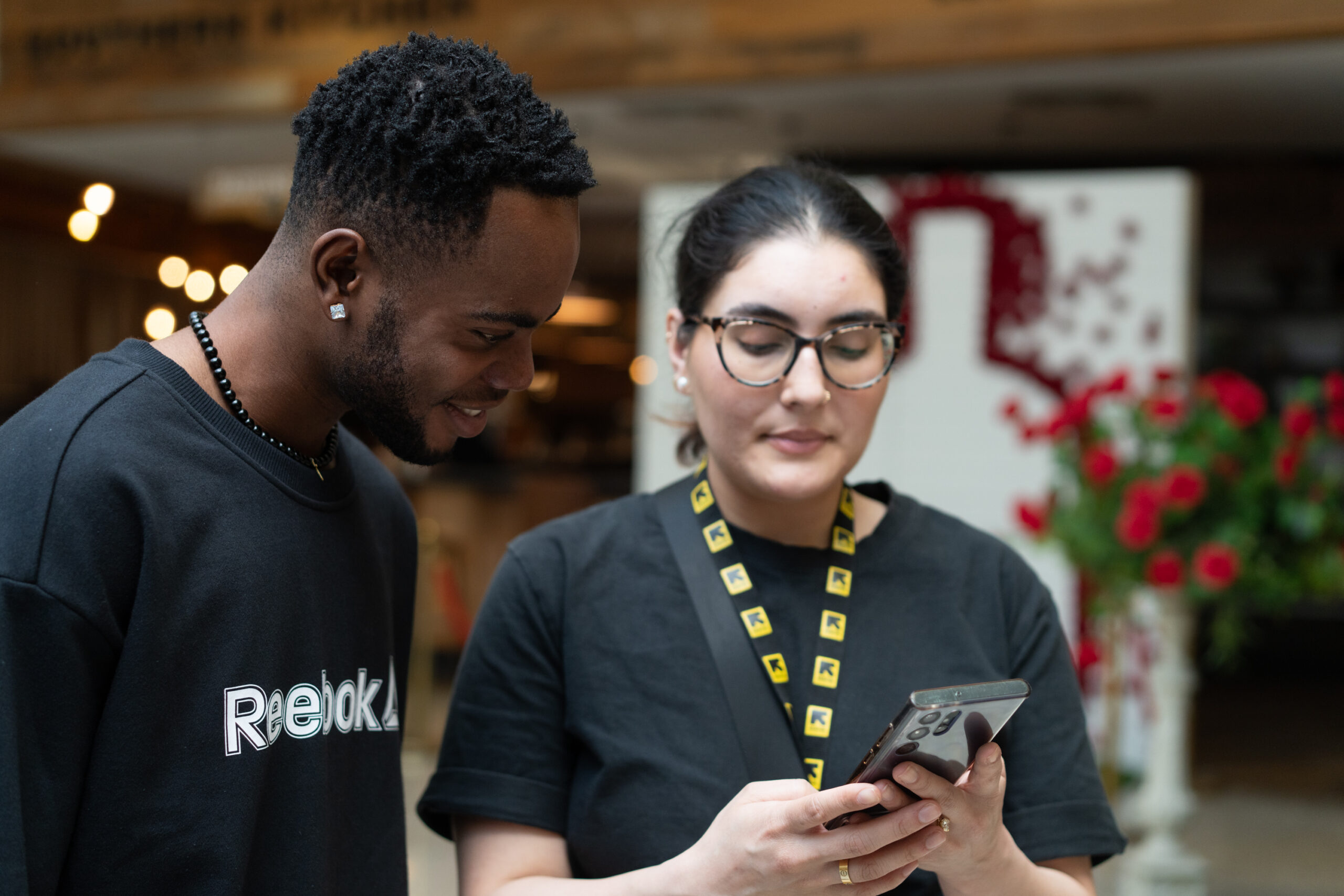
Banking
Opening and using a bank account is an important step toward financial independence and security. We are here to provide trusted resources, safe access, and clear guidance to help you confidently navigate the U.S. banking system. Developing a relationship with financial institutions can help you access a range of products and services to support your financial goals.
Whether new to banking or looking for more information, this page offers tools, education, and support designed for immigrant and English language learners. Our goal is to help you make informed decisions, protect your money, and build a strong financial future.
Frequently Asked Questions
Having a bank account provides a range of benefits in helping you manage your money conveniently and securely.
- Safety: Most banks are FDIC insured, which means your money is protected against loss, theft, and other life events up to $250,000. Banks also help protect your money by offering fraud and scam monitoring services.
- Convenient Money Management: Banks provide many ways for you to quickly access your funds, through atm, direct deposit, check and your debit card. You can easily manage your money through access to bank statements and mobile banking services.
- Access to Other Services: By putting your money in a bank you are building your relationship with a financial institution that offers other services that may support your financial goals, such as savings accounts, loans, credit products, mortgages, investment services to name a few.
Checking accounts are for everyday spending and transactions. You have unlimited access to this account and can deposit or withdraw funds as your balance allows. Checking accounts usually have debit card and check access to make using your money even easier.
Savings accounts earn some interest and are meant to be used for emergencies or other financial goals you set for yourself. There are limits on how often you can withdraw money from your savings account without a fee.
Each financial institution has its own process for account opening, but you may need to provide: a Social Security Number or Individual Taxpayer Identification Number (ITIN) number; state-issued identification like a driver’s license, a passport, or a country-issued identification card; your mailing address; and your date of birth.
Check out our Opening a Checking or Savings Account Handout below to prepare you for opening an account.
Banks provide a range of services including access to credit products and loans (personal, auto purchase, mortgage, etc.); business accounts and loan products; retirement and investment products/services; mobile banking; scam and fraud protection; credit monitoring services. Building a relationship with a bank can support you in managing your day-to-day money as well as your long-term goals.
If the bank doesn’t accept your documents, you can ask for specific information on why your documents were rejected and alternative documents you can provide. If they still do not accept what you provide, you can try another bank or credit union.
For support in finding and opening a bank account, make an appointment with a SAFE financial coach.
Banks and Account Information
Bank On

Bank On partners with local organizations and financial institutions to support consumers in accessing safe, affordable bank accounts.
What are the benefits of a Bank On-certified bank or credit union account?
- Open your account any time, online or in person
- No overdraft fees
- Most accounts cost $5 per month or less
- No surprise fees and easy tools to help you manage your money
Find a Bank On-certified account here.
Frequently Asked Questions About BankOn
National nonprofit organization, the Cities for Financial Empowerment Fund (CFE Fund), created the Bank On National Account Standards, which outline the features of a safe, affordable checking account. The CFE Fund certifies bank and credit union checking accounts that meet these Standards. Nationally certified Bank On accounts have no overdraft or insufficient funds fees, most are $5 or less a month, and you can use them to manage your money, deposit your paycheck, and pay bills at no extra cost.
With a Bank On certified account, you can deposit and manage your money faster and safer than with a paper check. Don’t pay fees for accessing your own money – use a safe account, with no overdraft fees. Your money is secure, as banks and credit unions take your personal security seriously with cutting-edge tools to protect your data; these accounts are also federally insured.
Certified accounts often have different names that don’t include “Bank On.” At a branch, you can ask about the “Bank On certified” or “no overdraft” account. Banks and credit unions often highlight their Bank On certification on their website account page; you can also visit www.joinbankon.org/accounts for a full list of all Bank On certified accounts.
Opening a Bank On certified account helps you start a relationship with a mainstream bank or credit union and includes features like online banking and debit cards so you can easily access your money. You also may be able to access other products – such as a credit card – at that bank or credit union after opening a Bank On certified account; note that this is a separate product from a Bank On checking account.
If you have an account at an institution that offers a Bank On certified account, you can talk to the bank or credit union and ask about opening a Bank On certified account. You may be able to transfer funds directly from your existing account to open this one.
If you have an account at another institution that does not offer a Bank On certified account, you can open a new Bank On certified account by selecting from the list of certified accounts here: www.joinbankon.org/accounts. You should talk to your current bank or credit union about closing your current account first, and work to transfer your account funds to the new institution.
Local Credit Unions
A credit union is a not-for-profit financial institution that accepts deposits, make loans, and provides a wide array of other financial services and products. Find a credit union here.
Juntos Avanzamos
A network of credit unions committed to empowering communities, particularly Hispanic communities, through affordable financial products and services. Juntos Avanzamos credit unions hire bilingual employees to promote cultural diversity in their financial institutions, accept various forms of identification, such as the ITIN number and the Matrícula Consular (Consular ID), and treat all members with dignity and respect, regardless of their immigration status.
Find a Juntos Avanzamos member credit union here.

 Banking in the United States –
Banking in the United States –  Opening a Checking or Savings Account –
Opening a Checking or Savings Account –